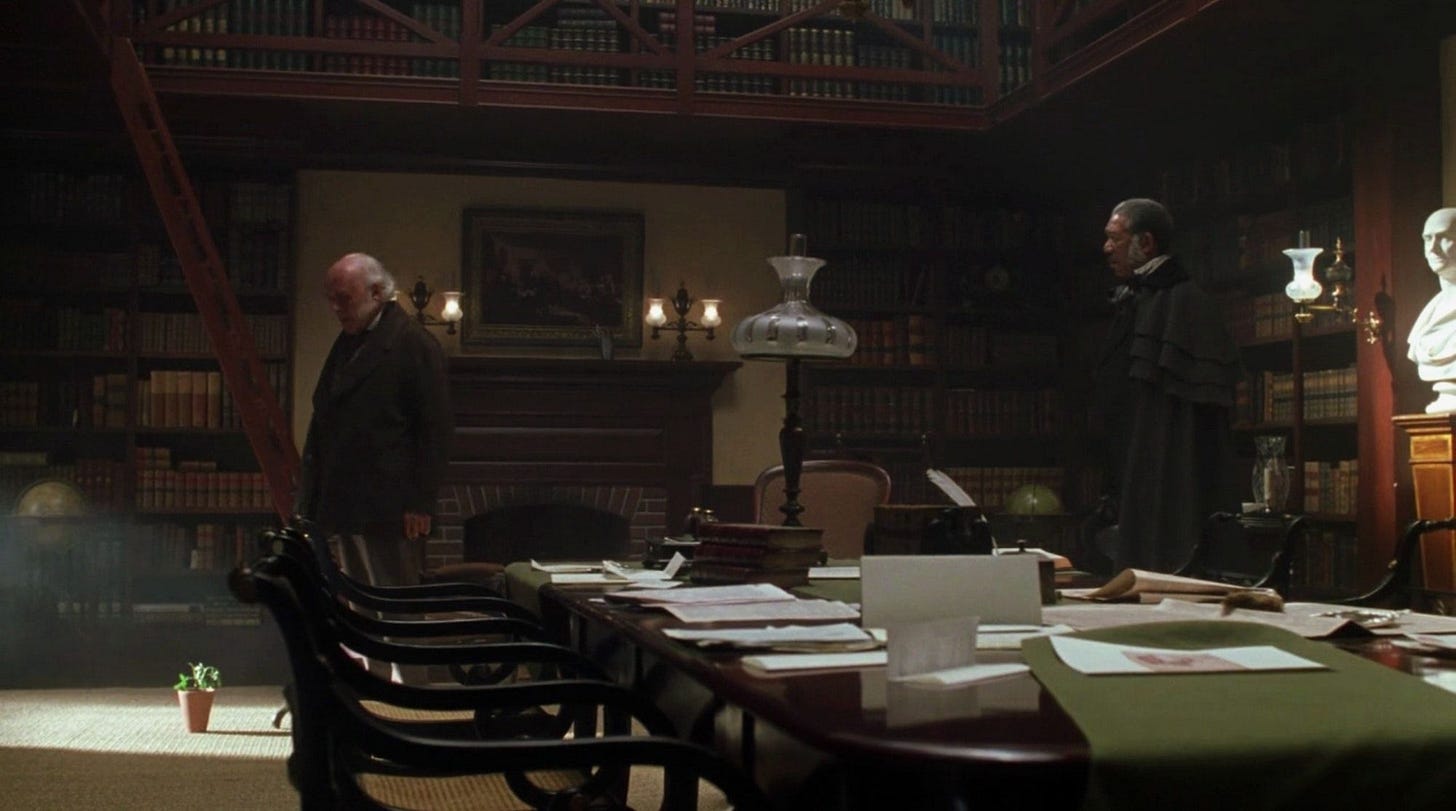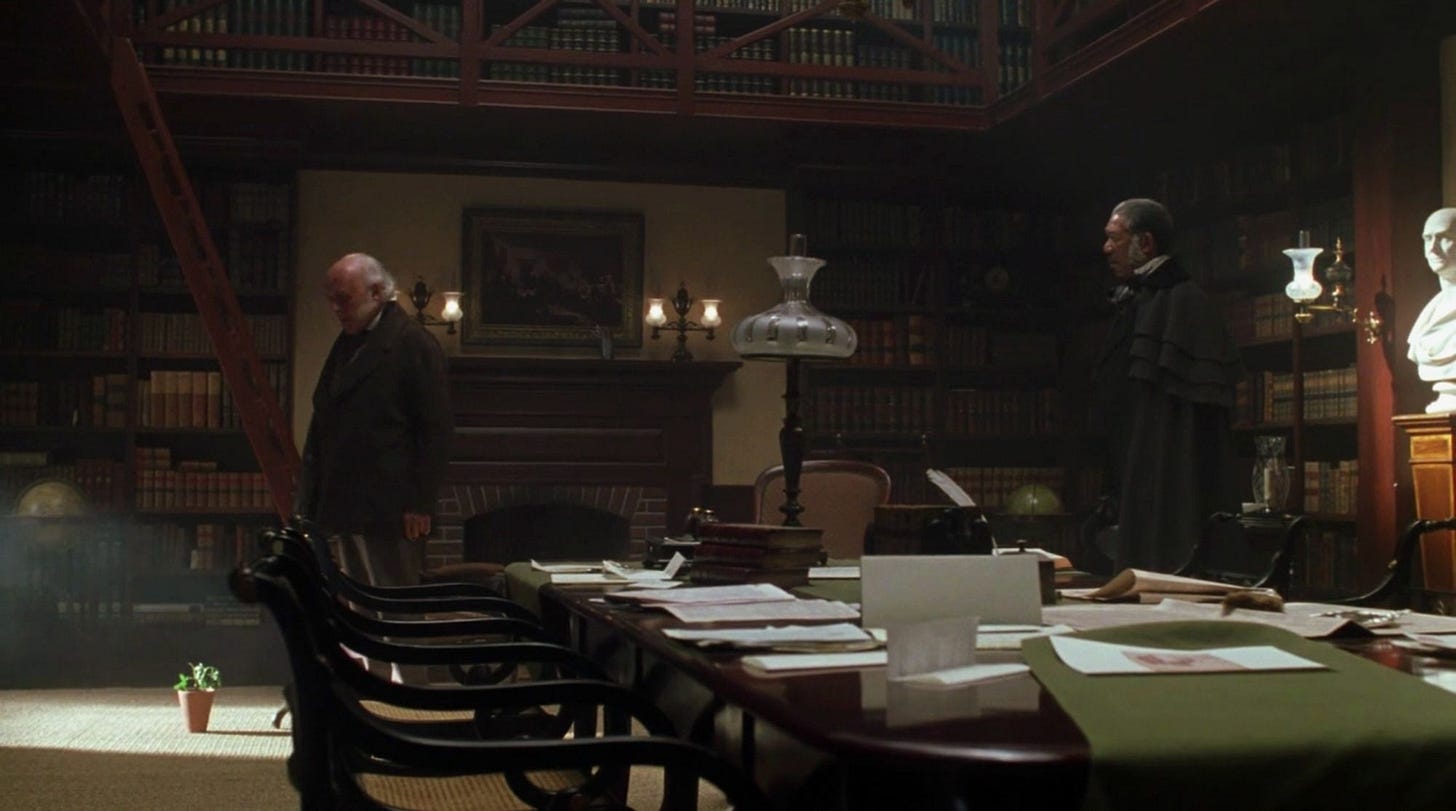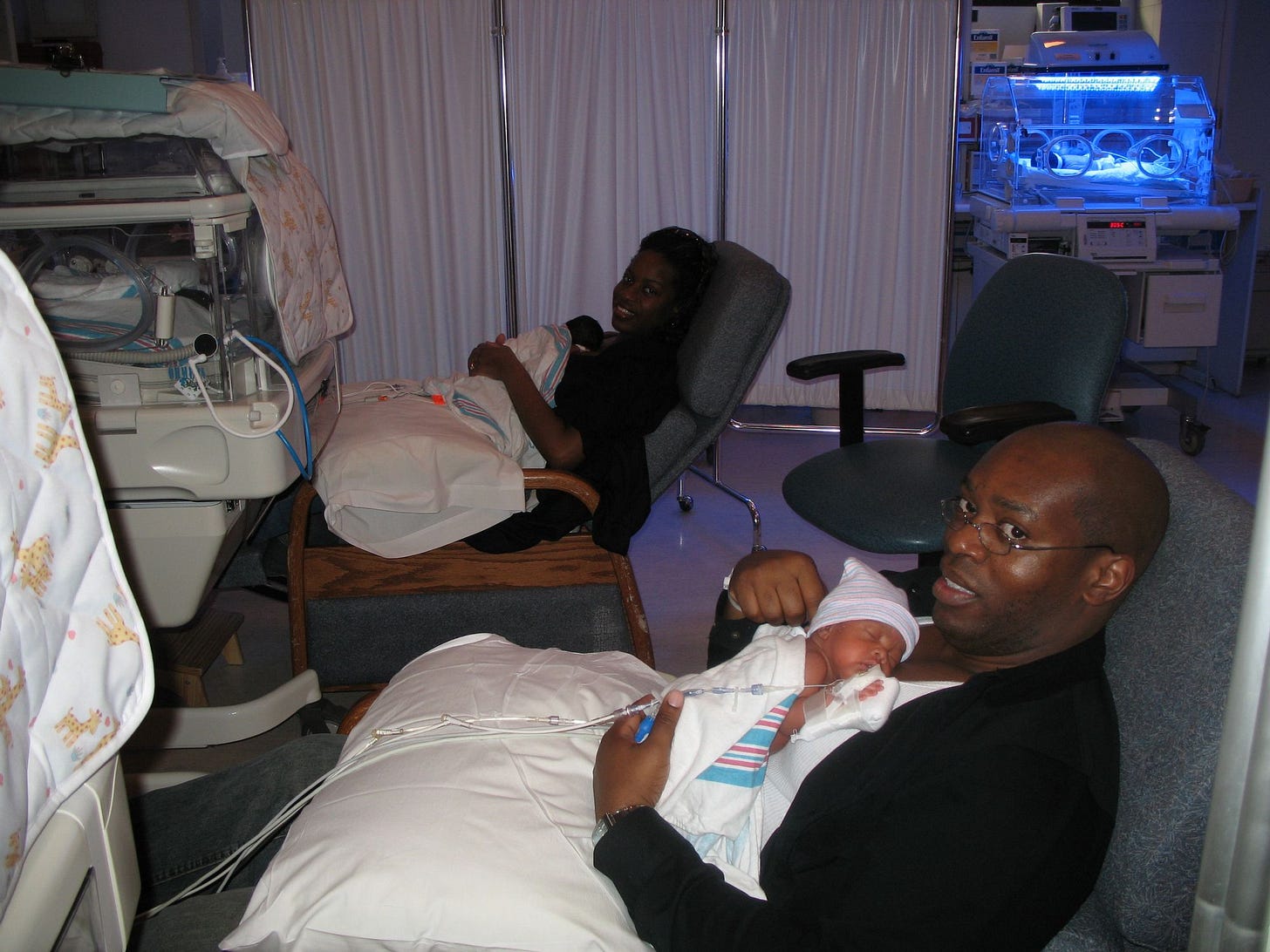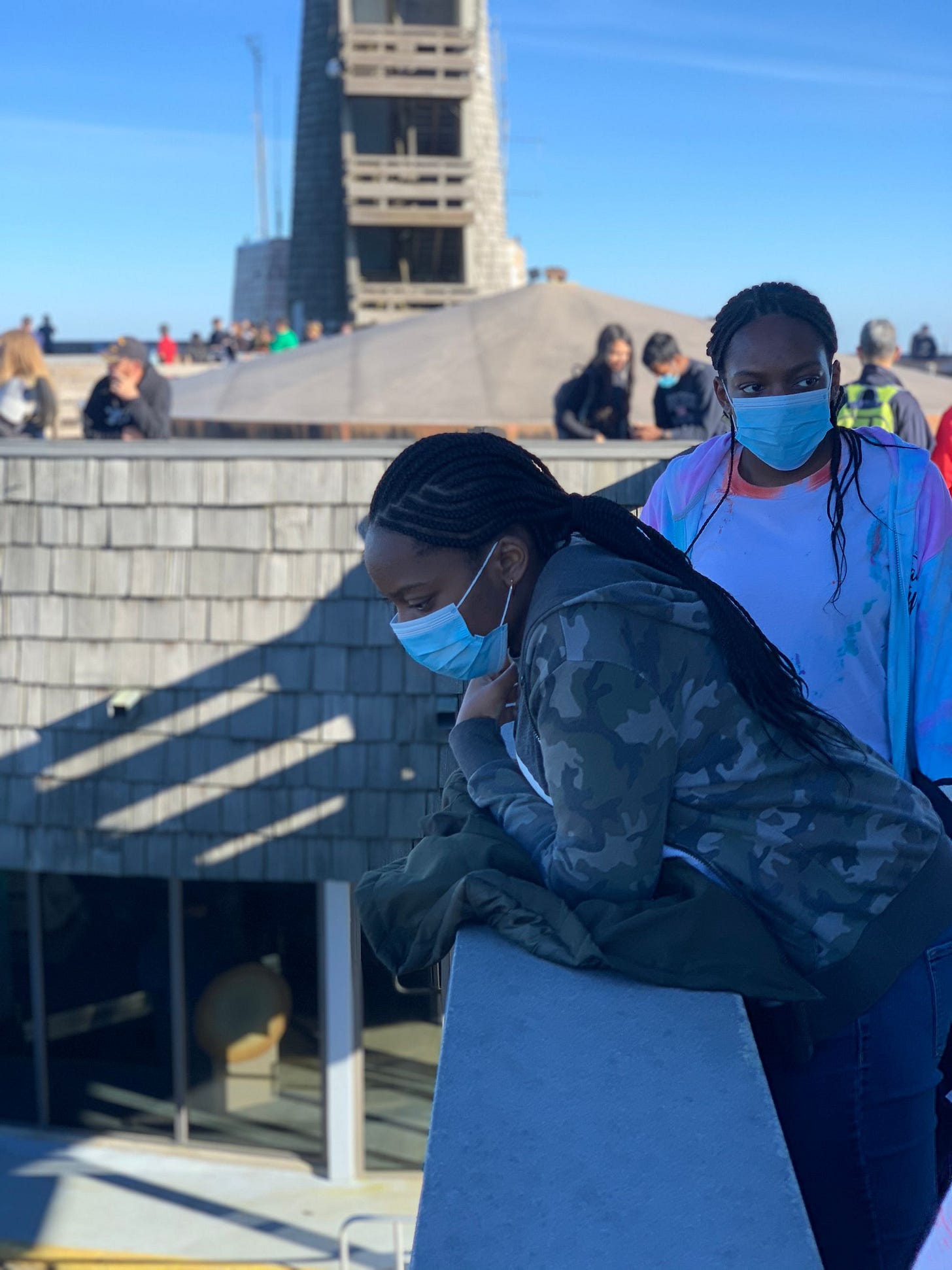Who are you?

My people. We dey here o. Just tried a number of takes attempting the #BussItChallenge, but my knees ain’t like they used to be, and this cool middle-class high-class black father can’t be messing around with these yeye challenges o like these concrete eating and spiritual ginger loading inhumans on Twik Tok or Facemash.
I mean, I can’t feel my face no more, I can’t feel my legs no more.
So, the family and I watched the movie “Amistad” last night, the third time for me…actually, it was one of those scenarios where I had to use my Presidential veto to make it the movie of the night, much to the chagrin of the Insurgents. However, it became clear to them relatively early in the movie that this was a monumental movie. Not quite the classic like Endgame or Spider-Man in their eyes, but…not bad.
One scene really resonated with me this go around. For some context, Morgan Freeman’s character goes to former US President John Quincy Adams played by Anthony Hopkins for counsel and possible assistance with a troublesome and stuck case for the Mende tribesmen abducted for the slave trade managed to gain control of their captors' ship off the coast of Cuba, and the international legal battle that followed their capture by the Americans in 1839 (from Wikipedia).
(Anthony Hopkins) "What is their story, by the way?"
(Morgan Freeman) "Sir?"
(Anthony Hopkins) "What is their story?"
(Morgan Freeman) "Why, they're um -- they're from West Africa."
(Anthony Hopkins) "No. What is their story?"
(Morgan Freeman) “??”
(Anthony Hopkins) "Mr. Joadson, you're from where originally?"
(Morgan Freeman) "Why, Georgia, sir." (Georgia’s in the house, baby!!)
(Anthony Hopkins) "Georgia."
(Morgan Freeman) "Yes, sir."
(Anthony Hopkins) "Does that pretty much sum up what you are? A Georgian? Is that your story? No you're an ex-slave who's devoted his life to the abolition of slavery, and overcoming the obstacles and hardships along the way, I should imagine. That's your story, isn't it?"
(Anthony Hopkins) "You and this young so-called lawyer have proven you know what they are. They're Africans. Congratulations. What you don't know, and as far as I can tell haven't bothered in the least to discover, is who they are. Right?"
Right?
I remember being at an event with a number of heavy hitters and VIPs in Mauritius, and one lady stepped up to me and introduced herself. I returned the greeting. And then she asked me:
“So, what do you do?”
Without hesitation, I answered, “I am a twin maker.”
Her face did that thing faces do on X-Files or Body Snatchers where the features morph in different directions, but being the gangster, of course, she recovered quickly with a huge grin on her face, recognizing what I was doing, and we had a wonderful conversation, and have been good friends since.
Especially since she is a twin herself.
Over the last year, I’ve been conducting sessions with folks on the African continent and the States on pitching and communications. I begin each session by asking participants to breakout and answer the question, “Tell me about yourself” amongst themselves. It is always an eye-opening exercise, as most folks end up giving a laundry list of their jobs and accomplishments. The one or two people who use storytelling to intro find themselves in the spotlight as their breakout mates shout them out, every time.
My thesis is that there is an onion to peel in asking or answering the question Who are you? Or even better, Who am I? That was the question I answered during the encounter I mentioned above, that I am the father of twins. That they came to this world under adverse circumstances, including that I lost my job at Time Warner Cable while Ngo was in the hospital on 24/7 bed rest for 6 weeks prior to their birth, that they spent their first three weeks in the NICU, and that not only did we weather that adversity, but that the girls are literally swallowing life like planet eaters right now fourteen years, gallons of Naija egusi soup, and 5’8 later. It is a story of resilience, rideordieology, of the amazing work of NICU nurses, of small wins one step at a time. Tell me that is not interesting and enlightening and makes you want more.
Part of this Who are you? discourse also means you finding your stories and choosing which ones you deploy depending on the scenarios you find yourself in. As Adams indicated in Amistad, there is just more flavor to folks than just what we do or where we are from. Your stories plenty o. And the more you incorporate them into your interactions, the richer those interactions are, and the more memorable those interactions are.
I am always tickled when my MBAs point to the story about the time my water was shut off mid-shower as bills had not been paid due to financial constraints, as the moment they knew they were in for a powerful course experience. Gather and nurture your stories, and drop them like it’s hot when you are being confronted by a gangster in Mauritius. Grab your audience of one or many’s attention, captivate them, transform them.
Harness the irresistible power of your stories.
I had an interviewee answer the Tell me about yourself question with “I am a generalist…I have range.” Whoa. That was killer, simple yet wide open. It forced me to ask and dig for more and gave her the flexibility to find the right stories to make me know her and her background better. Oh, she was a badass, accomplishments galore, but that was already on her resume. She was more interested in us peeling the onion, which we did. I’ve used her answer myself on a number of occasions.
BTW, she didn’t get the job. She deserved better in my opinion.
So.
Who are you? Tell us about yourself.






